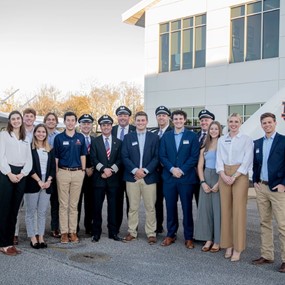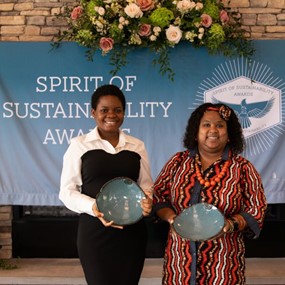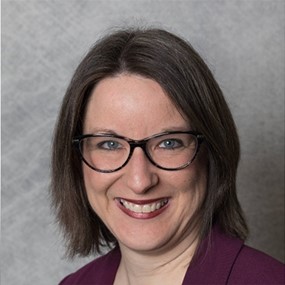Auburn for all: Journalism senior Noah Griffith advocates for accessible athletics experiences
Noah Griffith, an Auburn University journalism senior, has already made a name for himself in sports journalism. After writing a transformative column focused on accessibility issues in Neville Arena, significant changes were made to the seating policy — supporting Auburn students with disabilities by making athletics experiences more accessible.
“What you write does make a difference, and it’s not for nothing,” Griffith said. “Don’t sell yourself short on what you can accomplish, what you can do at Auburn. You can do big things where you’re at.”
A longtime athlete, Auburn man and accessibility advocate, Griffith continues to work to make Auburn more accessible, and the university listens to what he has to say.
“It just makes me feel like I have a place here at Auburn,” Griffith said. “To know that people welcome me and don’t see my disability as a negative or a downside, but something that I can bring to the table and hopefully bring education to the community.”
A natural athlete
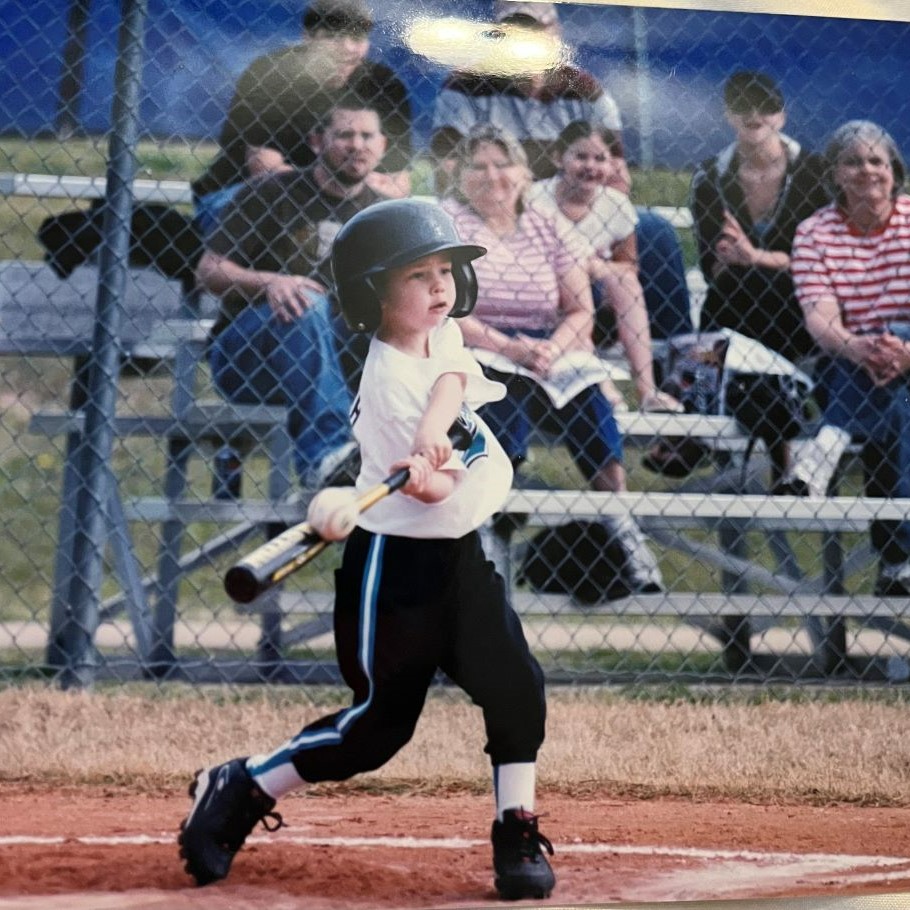
Griffith was born an athlete and began playing organized sports when he was 4 years old. Throughout high school, he played basketball and baseball. One of his earliest memories is practicing with a wiffle ball and plastic bat in his grandparents’ living room, and he’s an avid Atlanta Braves fan.
At 16, Griffith was diagnosed with Friedreich’s ataxia, or FA, a rare neuro-muscular disease that can cause loss of coordination, fatigue, vision impairment, hearing loss, slurred speech, scoliosis, diabetes and serious heart conditions.
When he was diagnosed, Griffith had to quit sports.
“That’s always what I kind of wanted to do with my life, that is my passion. But when I was diagnosed, that put a big question mark there,” Griffith said. “I didn’t know what this disease was or what it looked like for the future. It’s progressive. I didn’t use a walker at the time, I didn’t know if I was going to need a wheelchair in the next year or if I was going to be able to live on my own.”
As his future began to change, Griffith was unsure what to study in college. After he graduated high school, he enrolled in Southern Union’s general studies program for two years.
Auburn University is only 45 minutes away from his hometown, and many of his friends spoke highly of their time at the Plains. As Griffith read about Auburn’s journalism program, an idea began to take shape.
“I knew that sports was one thing I loved. I knew the other was writing. That’s one thing I thoroughly enjoyed in school,” said Griffith, who will graduate in December. “When I had a writing assignment, I felt confident in my abilities. I knew I wanted to do sports writing, and so journalism was just the obvious choice from there.”
Throughout his time in the journalism program, he’s had a front-row seat to Auburn’s football coaching changes, top-ranked basketball team and everything else Auburn Athletics had to offer.
An Auburn man
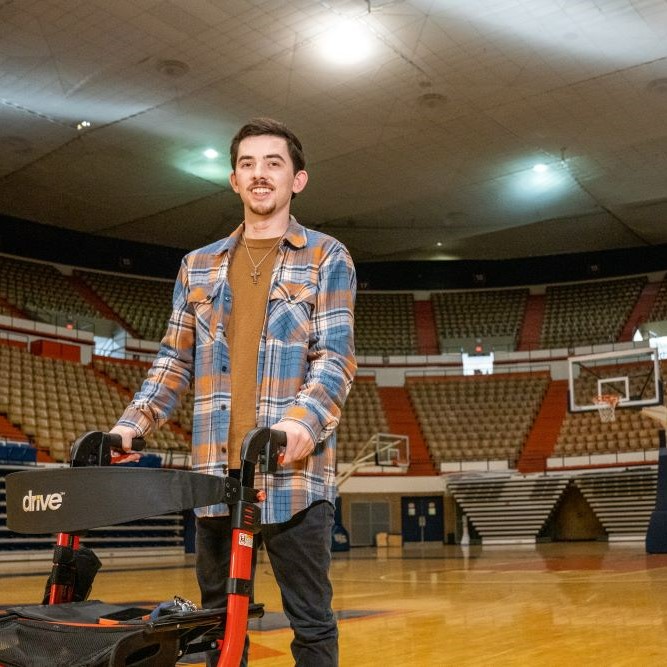
On the first day of Griffith’s first semester at Auburn, he joined The Auburn Plainsman, Auburn’s student-led newspaper, as a sports writer. Within less than a year, he worked his way up to a sports reporter and then as assistant sports editor.
Griffith covered quarterback Robby Ashford’s transfer to Auburn, the 2021 Birmingham Bowl, former football coach Bryan Harsin’s departure, Carnell “Cadillac” Williams’ coaching debut and the 2022 Iron Bowl, among other stories about basketball, gymnastics and baseball.
He said growing up watching athletes and sports reporters, then having the opportunity to cover Auburn sports himself is something for which he’ll always be grateful.
“To cover a football game my first semester at Auburn is something I never imagined would happen,” Griffith said. “I enjoyed it so much. I felt like I was so important going to that ball game, and I probably made it a bigger deal than it was. But just covering something and being able to find my own voice has gotten me to where I am today, so I’m really thankful.”
The turning point of Griffith’s journalism career at Auburn came in January of 2022. Auburn’s Jan. 19 home basketball game against the University of Georgia had students wrapped around Neville Arena hoping for a seat.
Griffith, who’d been to almost every Auburn basketball game, stood in that line for hours. Finally, the doors to the arena opened and students stormed in. Griffith was “left in the dust.”
Fortunately, he got into the game with assistance from other students, but he said it revealed how students with disabilities were left behind.
“That made me feel really bad, but it’s not just me. I’d heard other people in wheelchairs just didn’t even bother going to the games anymore because it wasn’t even fun,” Griffith said. “That was the biggest thing happening on campus. Everyone was talking about the basketball team. I don’t think having a physical disability should exclude you from being involved in that and being around that excitement.”
The next big home game was Kentucky at Auburn. The Tigers were ranked first in the nation going into the matchup, and social media was buzzing with excitement. The line to get in stretched across campus, and students prepared to camp out just to get a seat.
Griffith, and other students with disabilities, couldn’t run the risk of spending overnight in the cold. So, as the Kentucky game played in the background on Griffith’s television, he penned a letter to Auburn.
“It’s not fair, so I wanted to do something about it,” Griffith said. “It’s not that I want special treatment, it’s that I want fair treatment. People with disabilities should be able to sit in [Auburn’s student section] The Jungle. I’m doing this so that other people who have the same issues as me can have an enjoyable experience at sporting events.”
Griffith’s column, “Auburn Arena built for able-bodied students,” was originally a letter addressed to then-President Jay Gogue and his staff. The letter urged the university to consider accessibility needs beyond the shuttle or seating inside, including the “difficult, tiring process of getting into the arena.” Further, the letter pointed out that accessible seats are separated from the student section, which affects students with disabilities’ enjoyment of The Jungle experience.
The letter was a bold statement of the arena’s shortcomings, informed by Griffith’s powerful personal experience, and held Auburn accountable.
Three days after Griffith published the letter, Auburn responded.
An accessibility advocate
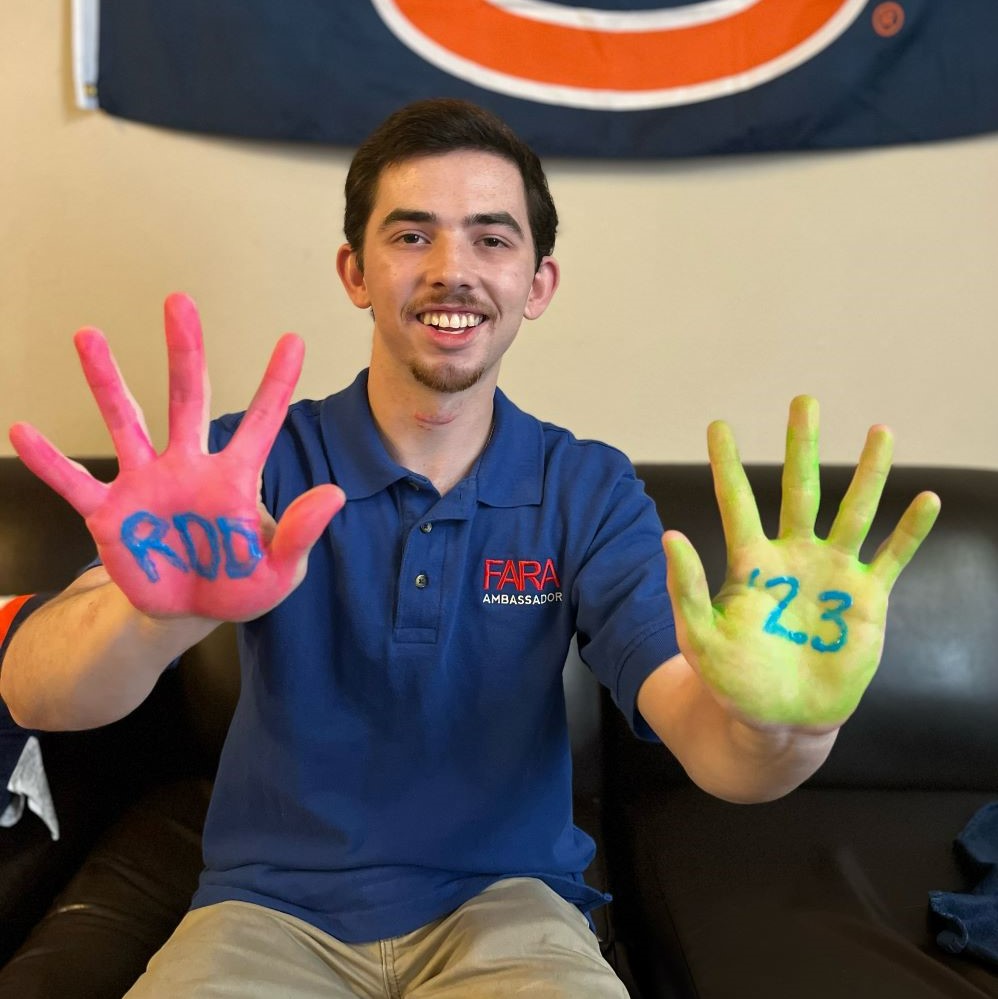
Auburn administrators wanted Griffith to break the news: in response to his column, a new arena seating policy was adopted to support students with disabilities at sporting events.
The changes included accessible seating in The Jungle, which could be reserved on a first-come, first-served basis. Students with disabilities also no longer needed to wait in lines outside — by reserving a seat, they would receive instructions on how to enter safely.
“I asked; Auburn delivered,” Griffith wrote in the announcement. “This is the power of journalism. It allowed me to stand up for what is right, be a voice for the disabled community and spur change for the better. To the Auburn student body, never doubt how much Auburn cares for you. Follow my example — if you see injustice, say something.”
Griffith received an outpouring of support for his work. Professors used his column as an example of how transformative student media can be. He was invited to speak in classes and received thank-you letters — all of which, he said, was unnecessary.
“I don’t need to be thanked for it,” Griffith said. “The payoff is seeing how people can benefit from it and how it’s changing the university and how accessibility became a newsworthy issue. I saw other coverage of accessibility afterwards that I thought was really awesome.”
Griffith’s column was a huge step toward improved accessibility in Auburn Athletics events, but his advocacy work started long before he came to the Plains.
In 2018, shortly after his FA diagnosis, Griffith enrolled in a clinical trial to help treat the disease and met a lot of encouraging people. He and his family also attended an event for the Friedreich’s Ataxia Research Alliance, or FARA, which encouraged him to become an ambassador for the organization.
As an ambassador, Griffith joined a network of representatives in the FA community to raise awareness and funds for research toward treatments and a cure.
“That kind of opened the door for me to say, ‘Hey, life’s not over. You still have a life to live. It’s going to look different, but you can do it,’” Griffith said. “With a disability, without a disability, you can have a great impact on the world, but you have to choose to overcome those obstacles in the first place.”
On campus, Griffith serves on the executive board for Advocates for Disabilities at Auburn. The student organization identifies and works to reduce accessibility issues on campus through fundraising and spreading awareness.
Griffith said while Auburn has been responsive and accommodating, improvements can always be made.
“Auburn is for everyone,” Griffith said. “I don’t want people to have to struggle at Auburn if you have a disability because you’re worried about accessibility. I want Auburn to be a university where anyone can come and be comfortable, regardless of your physical ability.”
And while his groundbreaking column continues to support accessibility at Auburn, Griffith said it’s also boosted his confidence in his abilities and helped him recognize his place both at Auburn and in the larger sports journalism community.
Griffith currently works with The Auburn Plainsman and The Opelika Observer as a community and sports writer, working to identify stories in the community that can make a difference.
“I know I want to do journalism,” Griffith said. “I feel like my niche, what I can bring to journalism is that I have a different perspective as a disabled person, and I feel like I’ve already got so much feedback on the articles that are printed about accessibility. Maybe I can go on and do that on a bigger platform.”
Find more information about journalism in the College of Liberal Arts.



